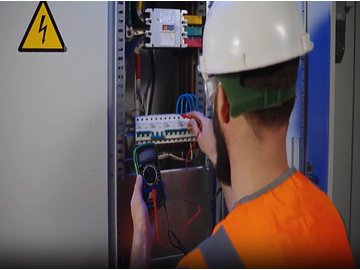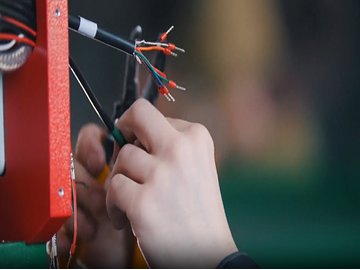Electrical Inspector Career Information

Career Growth Levels
Entry/Mid/Senior/ Experienced

Average Annual Salary
Approximately $53,453 per year

Job Growth Outlook
Projected to show little or no change from 2023 to 2033

Current Job Openings
Approximately 4,275 positions in the U.S
What is an Electrical Inspector?
An Electrical Inspector examines installed electrical systems to ensure they function properly and comply with electrical codes and standards. They work closely with construction professionals, homeowners, and companies to ensure electrical safety and compliance.

Primary Responsibilities
Conducting field inspections of electrical installations.
Documenting and mainting inspection records.
Identifying unsafe installations and advising on corrective measures.

Alternative Job Titles
Electrical Code Inspector
Electrical Safety Inspector
Electrical Compliance Officer
Education and Certification

Academic Requirements
A high school diploma or equivalent is typically required. Further education in electrical construction technology or a related field is beneficial. Many inspectors start their careers as electricians, gaining expertise through years of experience.

Professional Certifications
Certified Electrical Inspector (CEI): Offered by the International Association of Electrical Inspectors (IAEI), this certification validates proficiency in electrical inspections.
National Electrical Code (NEC) Certification: Demonstrates knowledge of NEC standards.

Continuing Education
Ongoing education is essential to stay updated with evolving electrical codes, technologies, and best practices. Participation in professional development opportunities is often encouraged.
Required Competencies
Technical Skills
Electrical Systems Knowledge: Understanding of electrical circuits, wiring, and equipment.
Code Compliance: Familiarity with National Electrical Code (NEC) and local regulations.
Inspection Techniques: Proficiency in using electrical testing equipment and conducting thorough inspections.
Professional Skills
Analytical Thinking: Ability to assess complex electrical systems and identify potential issues.
Communication: Effectively conveying findings and recommendations to stakeholders.
Attention to Detail: Meticulous in documenting inspections and ensuring compliance.

























